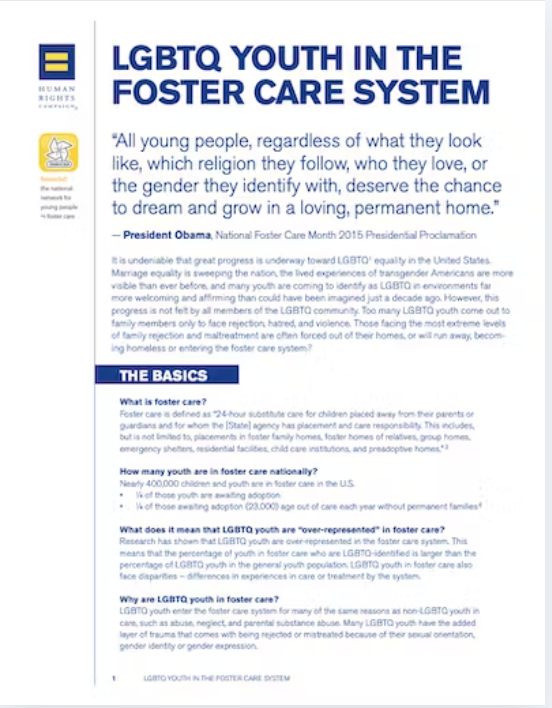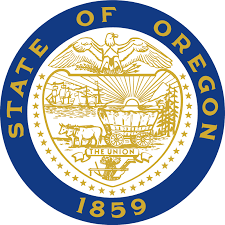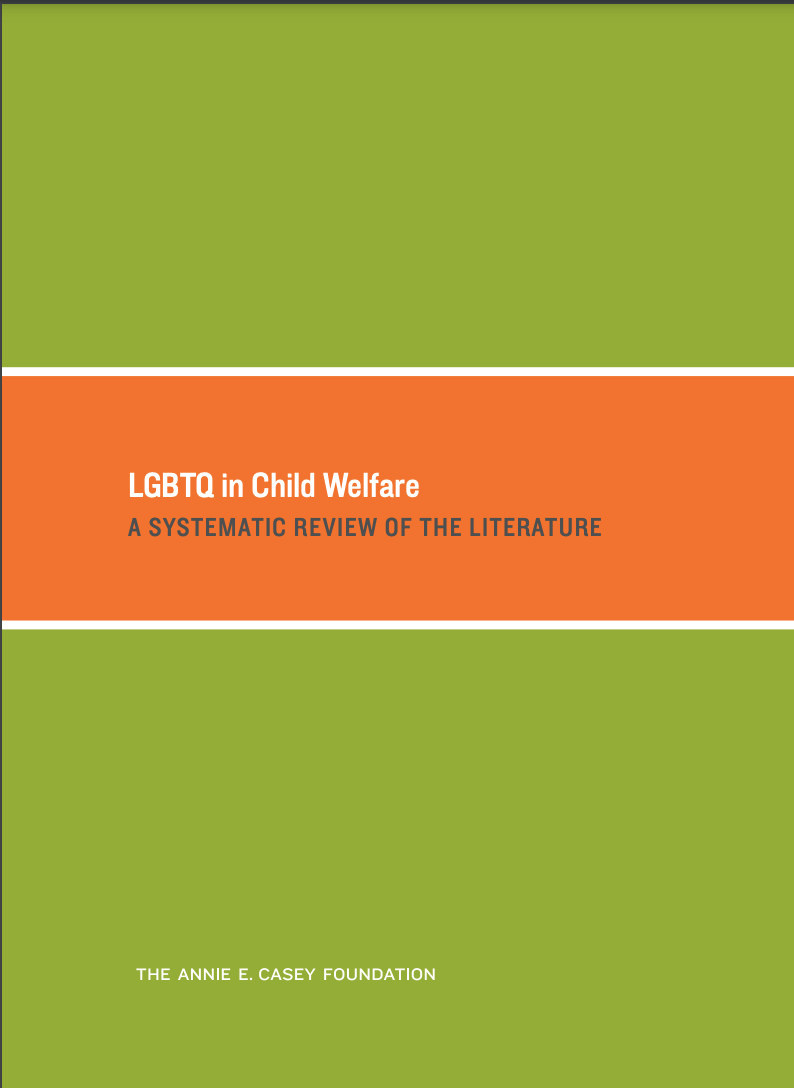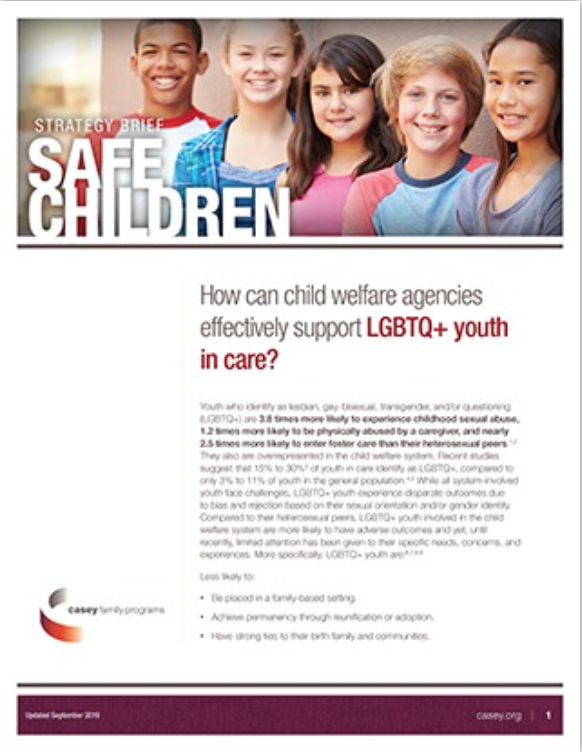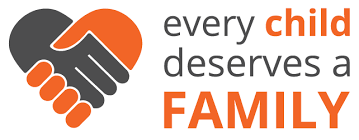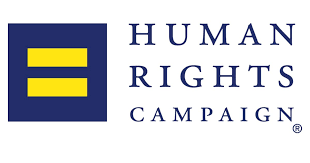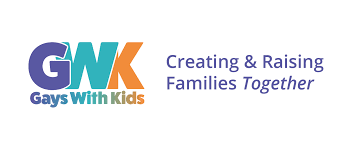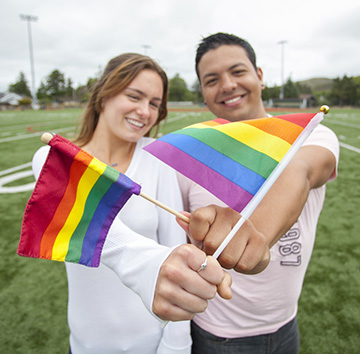
Every youth in foster care deserves equal and equitable care, regardless of their sexual orientation or gender identity.
Why it matters
LGBTQ2S+ youth often encounter discriminatory and inequitable treatment in the foster care system simply due to their sexual orientation or gender identity. Improved policies and practices are not just important, but essential, and are most effective when led by LGBTQ2S+ LEx Leaders who have firsthand experience within the system. These targeted improvements serve to provide queer identifying youth with the specific support and protection they rightfully deserve.
Quick Facts
Over 30% of youth in foster care identify as LGBTQ2S+, compared to 10% of the general population (source)
LGBTQ2S+ youth are twice as likely to report discrimination, and even more likely if they are Black or Brown (source).
In a 2019 FosterClub poll of LGBTQ2S+ youth, only 36% of youth agreed that they had an adult role model who affirmed their LGBTQ2S+ identity.
In the same poll, 75% of youth reported hearing negative messaging about their identities.

“Stopping youth from the ability to be in a loving family kind of defeats the purpose of why we have a foster care system.”
— Daysha, age 26, spent time in the Michigan foster care system
How we're working on this issue
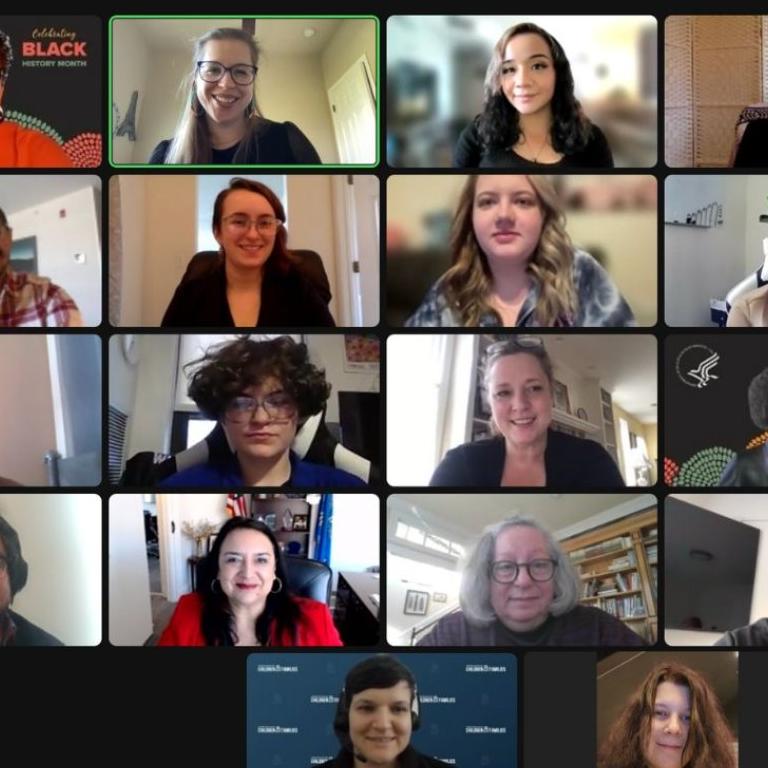
Speaking with Federal Officials About SOGI Data Collection
LGBTQ2S+ FosterClub LEx leaders often meet with federal officials to discuss their experiences related to sexual orientation and gender identity (SOGI) while in foster care. Conversations range from whether youth feel safe disclosing their SOGI, to the impact of coming out during their time in foster care.
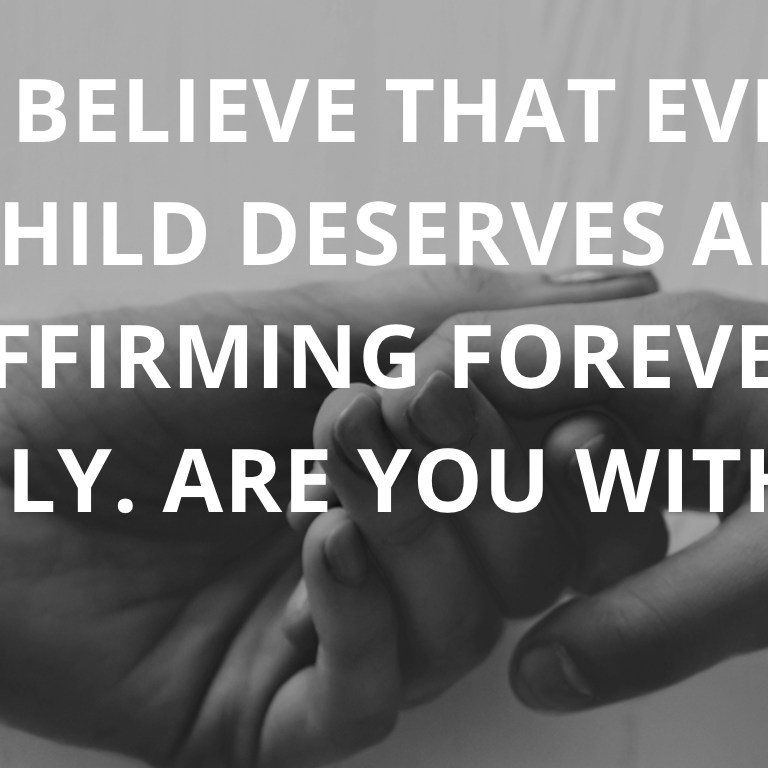
Advocate for Laws to Fight Discrimination by Agencies
LGBTQ2S+ FosterClub LEx Leaders often engage with a coalition of national organizations focused on supporting LGBTQ2S+ youth and families in foster care. For example, upon learning about a new federal rule aimed at preventing discrimination against LGBTQ2S+ individuals by federal agencies, LEx Leaders got together and shared their insights. Their expertise underscored the importance of anti-discrimination protections in ensuring the well-being and success of LGBTQ2S+ youth within the foster care system.
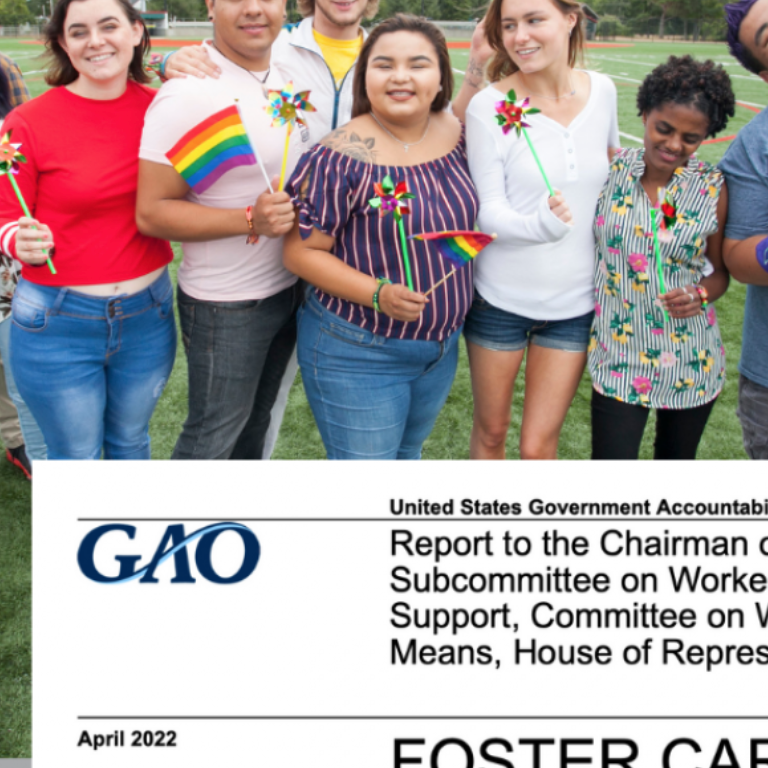
Contributing to Government Reports
LEx leaders collaborated with the Government Accountability Office staff to share their personal experiences in foster care, specifically focusing on LGBTQ2S+ identity and religious experiences. Their input informed a comprehensive report that scrutinized the conditions facing young people in the foster care system. The report offered actionable recommendations for states, suggesting the importance of data collection, the implementation of nondiscrimination policies, and enhanced training for child welfare professionals to better support LGBTQ2S+ youth.
"As a bisexual biracial youth, I noticed that a lot of caregivers and staff don’t have a lot of training around handling LGBTQ2S+ youth. I feel like their personal opinions get involved and make it more complicated… So creating more training and creating more transparency will move things forward.”
— Keyona, age 22, spent time in the Arizona foster care system

Blogs on LGBTQ2S+ Youth
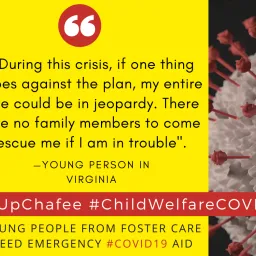
SOGIE Data Collection: Why Does It Matter?
First, let’s explore what SOGIE means. SOGIE stands for Sexual Orientation, Gender Identity and Expression. Sexual Orientation: who a person is attracted to Gender Identity: how a person sees themself Gender Expression: how a person presents themself to others, often within the spectrum of femininity and masculinity #FosterEquality is standing up for queer youth by advocating for policy and practice...
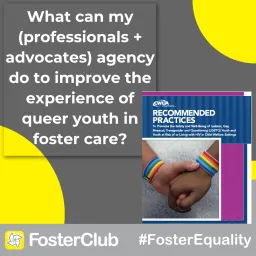
Practice Improvement: How can my (professionals + advocates) agency help improve the experience of LGBTQIA2S+ youth in foster care?
With recent blog posts from #FosterEquality focusing on the discrimination that LGBTQIA2S+ youth in foster care experience, you may find yourself asking, "How can my agency help improve the experience of LGBTQIA2S+ youth in foster care's experience?" Well, agency professionals and advocates, you've come to the right place! Below, you'll find suggestions on how to improve your agency's engagement with...
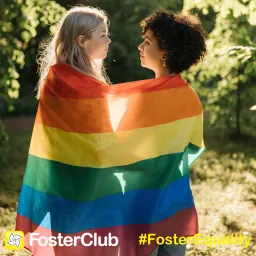
Are LGBTQ2S+ Youth in Foster Care Legally Protected from Discrimination?
"Name calling was happening in the group home but nothing was done about it." -- LGBTQ2S+ alumni of care There are no federal policies protecting youth in care from discrimination based on their sexual orientation and/or gender identity. TL:DR--Are LGBTQ2S+ youth legally protected from discrimination while in foster care? States are in charge of whether they want to have nondiscrimination...

So you want to be a foster parent for a LGBTQ2S+ young person?
"Validate us and accept us for who we are" -- former foster youth Foster youth who identify as LGBTQ2S+ experience unique challenges that their heterosexual and/or cisgender peers don’t. Caring and compassionate foster parents ( like you!) can help alleviate the effects of these challenges. TL:DR-- Before fostering a LGBTQ2S+ youth: Visit Discover Foster Parenting to hear what youth what...
#FosterEquality: Why Do We Care? And Why Should You?
LGBTQ2S+ youth are overrepresented in the foster care system and twice as likely to report poor treatment while in care. Almost 30% of foster youth identify as LGBTQ2S+, compared to 10% in the general population. The overrepresentation in care is likely due to familial rejection because of their queer identities, and can result in serious negative life outcomes and a...
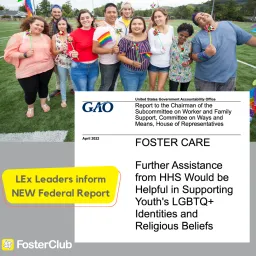
LEx Leaders informed Federal GAO Report on Supporting Foster Youth who are LGBTQ+ or religious
A new report released today from the Government Accountability Office (GAO) includes perspectives and insights from FosterClub Lived Experience (LEx) Leaders. Last summer, fifteen LEx leaders joined staff from the Government Accountability Office in two roundtable discusions where they discussed their experiences in foster care as young people who identified as a part of the LGBTQ+ community or experiences with...

